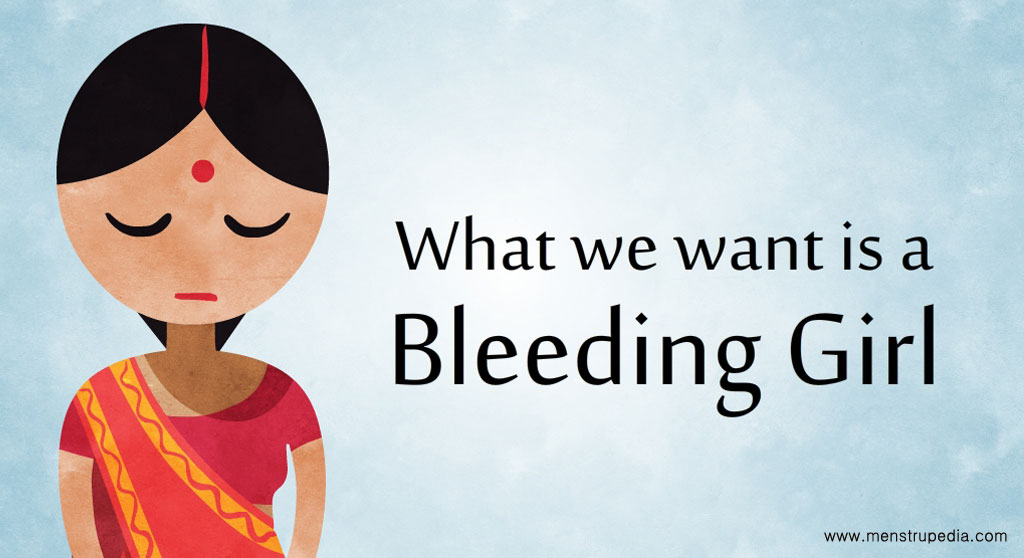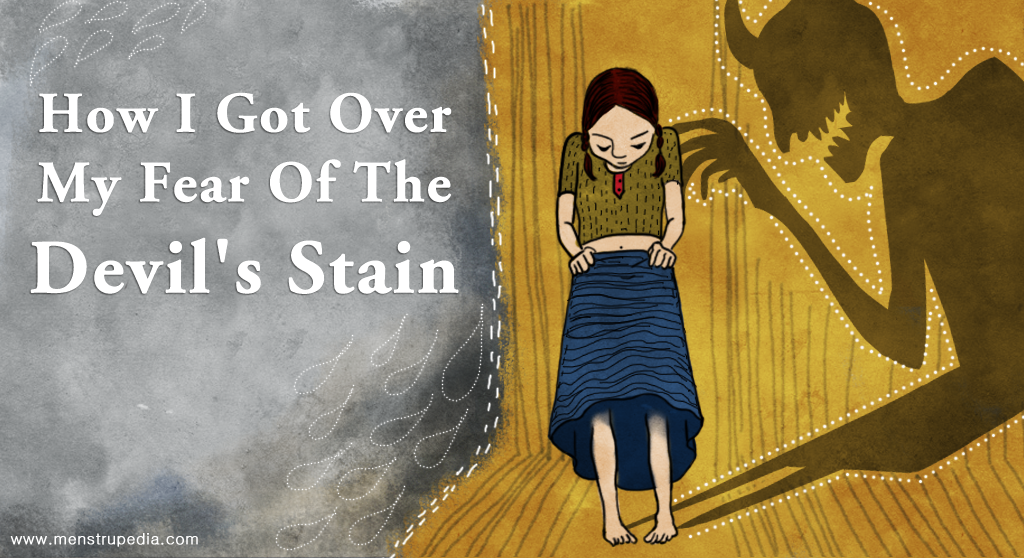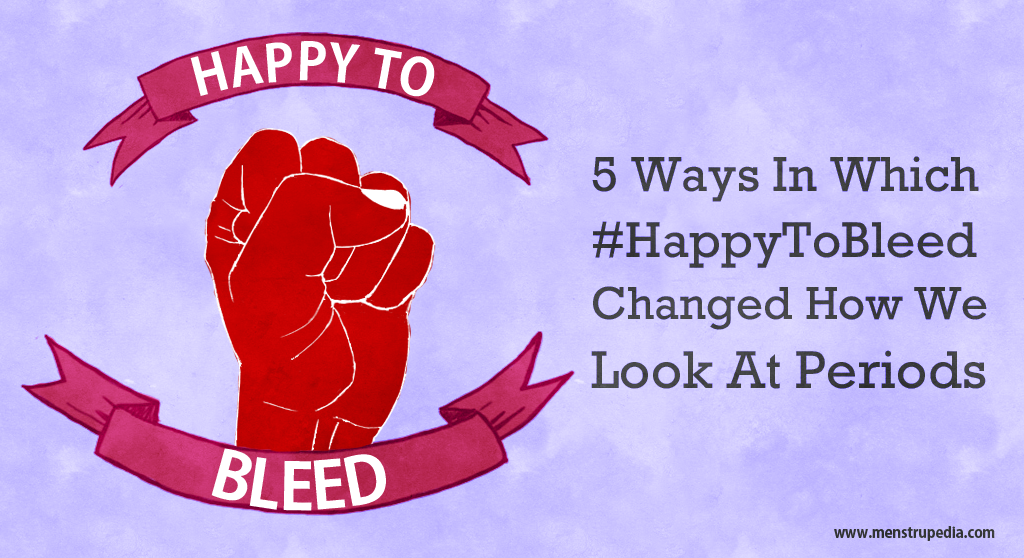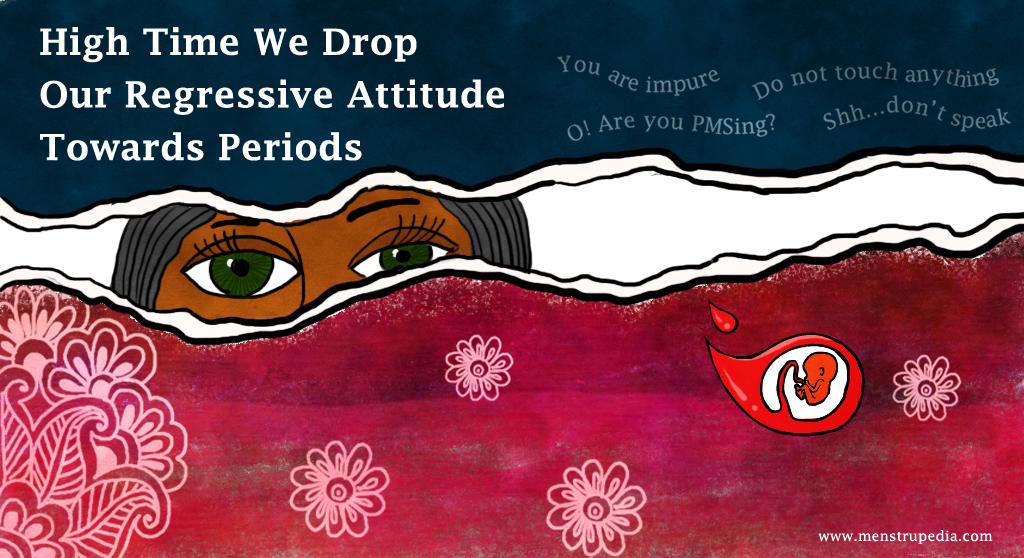I go to a medical store and purchase a packet of Whisper sanitary napkins. The storekeeper wraps it neatly in a newspaper and gives it to me in a plastic bag through which it would be impossible to know what I was carrying. I was thirteenyears old then, but this holds true today just like it held true back then. I watch television with my family and instantly turn red with embarrassment every time an advertisement about sanitary napkins or vaginal infection cures is shown. Through it all – I’ve been wondering the same thing over and over again – do I have to be ashamed of this?
Coming from a family which has thankfully never made me feel uncomfortable of having my periods, visiting a relative’s house as a young teenager, I was shocked, confused and humiliated by the treatment I was met with and the practices I had to follow for five days because I mistakenly told one of my aunts that I had just got my period. Could I control my body’s natural processes? No. Could I have questioned the untouchable-like treatment I received? Perhaps.
From a family member to a shopkeeper to the media, a range of people made me believe that what I was going through was dirty and impure and judging by the separate mattress, separate plates, sitting on the floor, no proximity to any person in the house and cleaning my plate with ashes – a legitimate crime.
I felt angry about the embarrassment, the social exclusion and the overall taboo attached to menstruation. I can’t step into a temple, but isn’t the goddess residing there also a woman who must’ve also gone through the same bodily functions but hasn’t been forcibly segregated during her ‘time of the month’? Did the bias make any sense? Not to me.
What can we do?

Education, both formal and social, needs to be more sensible, proactive and thoughtful about how we bring up young girls to think about their bodies because what we learn from a young age remains with us all our lives and we may pass it on to the next generation of girls as well. We must teach our girls not to be ashamed or hesitant to speak of our bodies or our menstrual cycle which is a vital bodily process that all women go through.
We must, as an active society, encourage young girls to engage in discussion and ask questions freely. They are rather scared and confused as it is. Forcing them into practicing customs which they are not comfortable with are unjust and uncalled for,forcing them into becoming passive in their approach to themselves and will forever cause them to be trapped in the confines of social norms and pressures.
Ask yourself, do you really have to be ashamed of who you are?
 Author: Riddima Sharma
Author: Riddima Sharma
A patriot and hopeful change maker, Riddhima is a believer in the power of women to change the world. She has studied Political Science with special reference to the feminist movement, feminist theory and the position of women in Indian politics. She is currently pursuing Law and hopes to specialize in women related laws and work with an organization in a related field.
Editor: Divya Rosaline
Menstrupedia Comic Book helps young girls learn about menstruation easily in a fun way! Read it for FREE here






